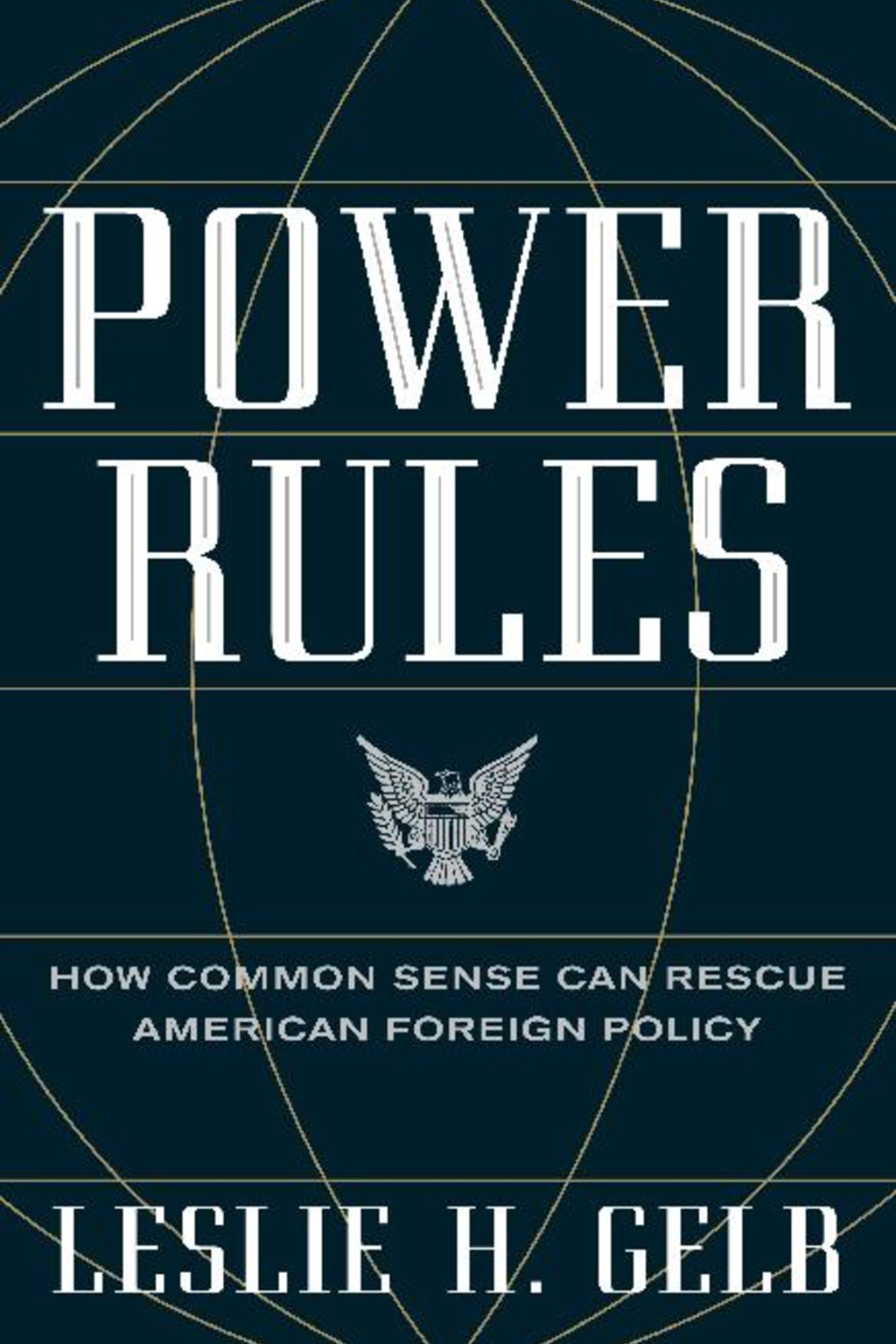Power Rules
How Common Sense Can Rescue American Foreign Policy

- Publisher
- HarperCollins
- Release Date
- March 2009
- Pages
- 352
- ISBN
- 9780061714542
Inspired by Machiavelli’s classic The Prince, CFR President Emeritus Leslie H. Gelb offers guidelines to the U.S. president in a new book on how to think about and use American power effectively in today’s tumultuous world—all drawn from Gelb’s four decades of access and influence in government, think tanks, and journalism.
In Power Rules: How Common Sense Can Rescue American Foreign Policy, Gelb argues that American leaders have failed to recognize three key power realities. First, the world is not flat; it is highly pyramidal in power. Second, power is neither soft (persuasion and values) nor hard (military force), but psychological pressure based on the skilled use of carrots and sticks. Third, Gelb asserts, the world has not entered the post-American era; rather, the United States remains the sole global leader, but without the power to dominate.
From this, he develops his central operating principle for international power: mutual indispensability. The United States remains the indispensable leader in solving major world problems, but needs equally indispensable partners (the other major powers). “Fail alone, succeed together,” he concludes.
One reviewer in the National Interest magazine says Gelb has “enough gravitas to sink a battleship,” and labels the book his “magnum opus.”
Publishers Weekly gave the book an unusual start and made it “Pick of the Week.” Its “starred” review said that “Gelb’s bulleted rules and clear advice to President Obama distill his moderate strategic thinking on the future of America… It is a vision of a pragmatic but responsible global U.S. presence that eschews partisan politics and should find favor in the coming political clime.”
Gelb clears a new path for thinking about today’s military power (“the storm”) and today’s economic power (“the tide”). Military power now is mainly for deterrence and punishment, and should not be used to conquer nations, promote democracy, or do nation-building. He shows the complexities of using economic power and explains that it works slowly and requires great patience by American leaders. He packages military and economic power with diplomatic power in “power coalitions,” to make power work.
Gelb advises the president that, “America’s leadership power is based primarily on our capacity to galvanize coalitions to solve or manage major world problems.” He says that the key is helping others solve their problems: “if we do, they will follow; if we don’t, they wont.”
“This book is a must-read not just for President Obama, but for anyone who wants to understand how the new administration can improve its odds of strategic success,” urges Jacob Weisberg, editor of Slate magazine.
Reviews and Endorsements
Selected as an Editors‘ Choice by the New York Times
Fluent, well-timed and ... provocative. ... Gelb’s ruminations are welcome and stimulating.
Power Rules gets the new rules right.
Informative and well-crafted ... an excellent primer for those seeking a common-sense approach to foreign policy.
Gelb is at his best.
Joe Klein, Time Magazine
A witty and acerbic primer for moderate pragmatists.
One piece of advice: Read it!
Lea Carpenter, Big Think
Power Rules belongs in the top tier.
[A] thoughtful, comprehensive, and engaging examination. ... Gelb’s bulleted rules and clear advice to President Obama distill his moderate strategic thinking on the future of America ... a vision of a pragmatic but responsible global U.S. presence that eschews partisan politics and should find favor in the coming political clime.
If you care about America’s standing in the world—why it has declined, and how to restore it—this book is essential reading. Les Gelb, one of America’s most distinguished practitioner-observers of foreign policy, brilliantly explains how a series of administrations weakened our nation’s security, and shows how we can reverse this trend. Sparing no one in his analysis, Gelb shows how the U.S. failed to use its own strengths to achieve its stated goals, and offers, in succinct and user-friendly prose, the basic power rules with which the U.S. can—and must—restore its proper leadership role in the world. Power Rules is an indispensable book for the new era.
Ambassador Richard Holbrooke
Leslie Gelb has as much experience in foreign policy as anyone alive. Unlike most writers in this field, he isn’t afraid to use plain language and say what he means. He relishes hard truths. And he doesn’t mind making powerful enemies. All of these are prerequisites to writing a modern Prince—which is what Gelb has done. I don’t agree with all of it, but I greatly admire this handbook on the uses of American power in a complex age.
George Packer, New Yorker
Les Gelb tells it like it is: making U.S. foreign policy and using American power are common sense, not rocket science. Our leaders forget this truth at our peril. Incisive and thoroughly compelling, Power Rules is rich in colorful stories as well as in sound advice for our president and our people.
Brent Scowcroft, former national security adviser
Power Rules provides a much-needed antidote to the ideological fevers that have ravaged American statecraft in recent years. Leslie Gelb’s reflections on power, its effective use, and its limitations are shrewd, trenchant, and refreshingly devoid of either cant or partisanship.
Andrew J. Bacevich, professor of international relations at Boston University
For years, Les Gelb’s friends have been learning about foreign policy by way of his wisecracks and anecdotes. In Power Rules, he shares a lifetime’s worth of wit and wisdom with the rest of the class. The amazing thing about this shrewd updating of The Prince is not just the insight Gelb brings to topic of America’s exercise of power in the post–Cold War, post-Bush world, but how entertaining he makes the whole subject. This book is a must-read not just for President Obama, but for anyone who wants to understand how the new administration can improve its odds of strategic success.
Jacob Weisberg, Slate